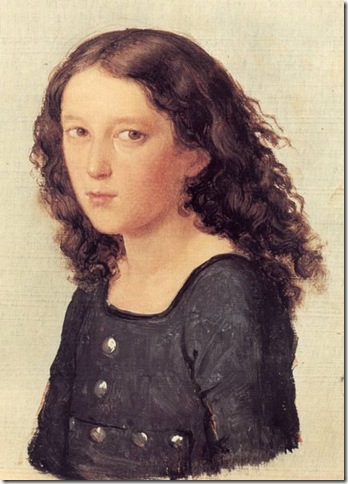The days when your basic high-end party for the swells featured fresh music by a talented local composer are long gone, but the music itself lives, and in a good performance, can go some way toward reviving a lost era of graceful living.
The Firebird Chamber Orchestra’s current program of serenades does just that, with refreshingly buoyant and engaging performances of early works by Mozart and Mendelssohn, and the much-beloved Serenade for Strings of Tchaikovsky.
Director Patrick Dupré Quigley, leading his Seraphic Fire side project in concert Thursday night at St. Gregory’s Episcopal in Boca Raton, didn’t bring anything particularly new to the music from an interpretive point of view, but his programming of the two prentice works showed again that his enthusiasm for worthy rarities remains undiminished.
This version of the Firebird orchestra featured 14 players from various parts of the country, all except the cellos standing, and rearranging themselves smoothly for the different works. These are expert performers, and aside from out-of-tune octaves in the violins during the Mozart, they played with accuracy, style and polish. Something about the austerity of the presentation made it that much more effective; those ostensibly small forces made a lot of big music.
Thursday’s concert opened with an early divertimento (in D, K. 136) by Mozart, probably written in Milan in late 1771 or Salzburg early in 1772. This is sunny, delicious music, full of high spirits and charming invention, and in the third movement, even a hint of fugue.
The first movement was crisp and fast, with on-point scales rocketing back and forth, and a nice change of mood just before the recap as second violins played their accompaniment figures with a hushed, mysterious murmur. Fast figures didn’t mean a thin texture, though, and the warmth of the sound the Firebird was able to supply in the elegant second movement was gratifying.
If the first six soft-footstep chords were not quite together at the start of the finale, the rest of the movement chattered along nicely, and the musicians observed a fine sense of balance. Also worth noting throughout was a scrupulous attention to dynamics, which added color and variety to the divertimento.
Next came the eighth (in D, MWV N 8) of Felix Mendelsson’s dozen string sinfonias, written at the end of 1822 when the composer was only 13. It’s more substantial music than the Mozart, and offered the Firebird an abundance of interesting elements to work with.
The unison octaves that dominate the language of the introduction to the first movement were right on the money, and set up the rest of the music in suitably dramatic fashion. The Allegro that followed had a great sense of frothiness and tension, with a sparkling main theme sharing sonic space with chromatic scales rising snakily out of the bottom of the texture.
The second-movement Adagio is scored for violas and bass alone, and the three violas here – Doyle Armbrust, Dominic Johnson and Erik Rynearson – played this dark, Bach-influenced movement with tenderness and delicacy. The orchestra offered strongly accented playing in the third-movement Minuet, and in the Trio again put dynamics to the fore, alternating softs and louds back and forth in a very entertaining manner.
The finale, which owes so much to Mozart’s Jupiter Symphony, had plenty of energy, though the opening theme could have stood out more on its first entrance. There were again some slightly sour octaves in the violins from time to time, but overall, this was a performance full of vigor and youth, and it raised the idea of a Firebird Chamber Orchestra recording of the Mendelssohn string symphonies.
The third and final work on the program was the Tchaikovsky Serenade (in C, Op. 48), which often is heard with a much larger complement of strings. But the Firebird was plenty large enough to give a rousing reading of this thrice-familiar piece, and it went well with Tchaikovsky’s neoclassical inclinations, sympathies that bring this work close to the world of the Mozart divertimento.
As always, Quigley favored the get-on-with-it tempo, and he kept the high emotion of the opening theme fully present. He also gave plenty of rein to the Italianisms present in this part of the Serenade (Tchaikovsky loved traveling in Italy), and the orchestra made them rich and pretty.
The waltz second movement was firmly dance-like, not idealized, so much so that in the middle the effect was almost salon-like, with heavy beats and a broad indulgence in Tchaikovsky’s alluring tune. The Elegy that followed was quite beautiful, especially when the cellos entered with their reading of the impassioned main theme.
The finale began a little too amorphously, and could have used a clearer explication of the rhythms. But the rest of the piece was played marvelously well, with excitement to burn as the Russian folk tune around which the movement is built raced to its headlong conclusion.
The Firebird Chamber Orchestra clearly has a warm bond with its conductor and founder, and there is something wonderfully committed and engaged about its performances. This is a collection of musicians that is having a terrific time on stage, and its joy in music-making is infectious.
The Firebird Chamber Orchestra performs this program at 8 tonight at All Saints Episcopal Church in Fort Lauderdale, and at 4 p.m. Sunday at Miami Beach Community Church in Miami Beach. Tickets are $35; call 305-285-9060 or visit www.seraphicfire.org.
